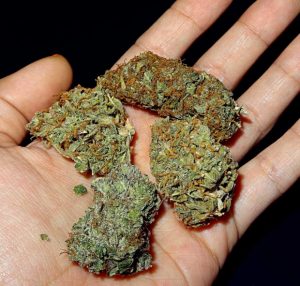Law enforcement officers in Massachusetts are grappling with an increasing threat on our streets: Drugged drivers.
According to the National Institute on Drug Abuse, approximately 10 million people over the age of 12 report driving under the influence of illicit drugs in the last year. Men are more likely culprits than women, as are drivers between the ages of 18 and 25.
Those figures were derived from 2014 survey responses. Police across the Commonwealth report there has been at 225 percent increase in drug-related Operating Under the Influence (OUI) citations over the last several years. Violations for drugged driving spiked from about 660 in 2010 to 1,540 in 2015.
As the Suffolk County District Attorney exclaimed, “That just… should be frightening to all of us.”
This is especially true when you consider that while we have the tools necessary to detect the impairment of a driver who is under the influence of alcohol, our officers are less equipped to prove a driver was on drugs.
For example, there is currently no scientifically sound method of proving marijuana impairment. The amount of THC (the active ingredient in the plant) is not indicative of impairment. A person who regularly uses the drug could have a level of THC, and yet not be under the influence, because the drug stays in the system a relatively long period of time, particularly as compared to substances like alcohol, which are processed quickly. But that also means that someone with a much lower level of THC could actually be under the influence, having recently consumed just a little.
Similar problems exist with other substances.
This problem has been greatly exacerbated by the legalization of both medicinal and recreational marijuana, as well as the ongoing horrors of the opioid epidemic sweeping the nation. Prosecutors say they “feel behind” when it comes to catching up on the technology and bandwidth to tackle this issue. As we mentioned earlier, there is the lack of any type of “breathalyzer” device, such as what is used for alcohol. The state police are in the process of testing one, but approval has been slow.
Additionally, there is a shortage of specialists known as drug recognition experts. These are police officers who receive specialized training that helps them better identify when an individual might be high on drugs. It helps to bolster testimony in a criminal courtroom, and such experts also sometimes will testify in civil case drunk driving injury proceedings as well.
The Commonwealth doesn’t have what’s known as a per se limit for drugs other than alcohol, for which the limit is 0.08. Such limits are controversial, though, owing to concerns that drugs may affect individuals differently and actual impairment is tougher to accurately measure.
Still, he problem needs more attention. The founder of Mothers Against Drunk Driving, Candace Lightner, has since shifted her focus to a non-profit called We Save Lives, which focuses on drugged driving. Lightner said the biggest problem is that lawmakers are largely still denying there is a drugged driving problem or have failed to educated themselves about effective solutions.
Hearings on a proposed bill that would se per se marijuana limits is slated to be heard by the Massachusetts legislature this month.
If you or someone you love has been injured a Boston drunk driving accident, call for a free and confidential appointment at (617) 777-7777.
Additional Resources:
High Behind the Wheel: Mass. Struggles to Keep Drugged Drivers Off the Road, Feb. 2, 2017, By Ally Donnelly, NBC Boston
More Blog Entries:
Boston Courts Deal with Issue of Drivers Alleged to Be On Marijuana, Feb. 13, 2017, Boston OUI Injury Lawyer Blog
 Boston Drunk Driving Accident Lawyer Blog
Boston Drunk Driving Accident Lawyer Blog

